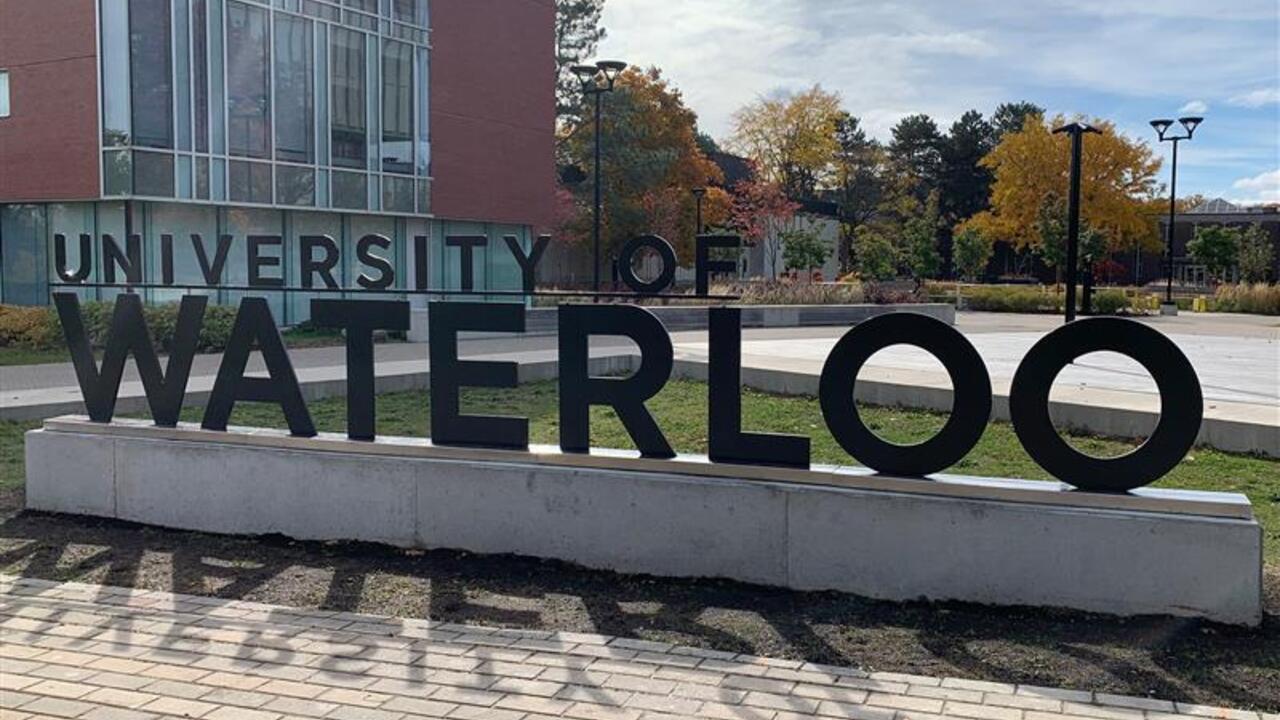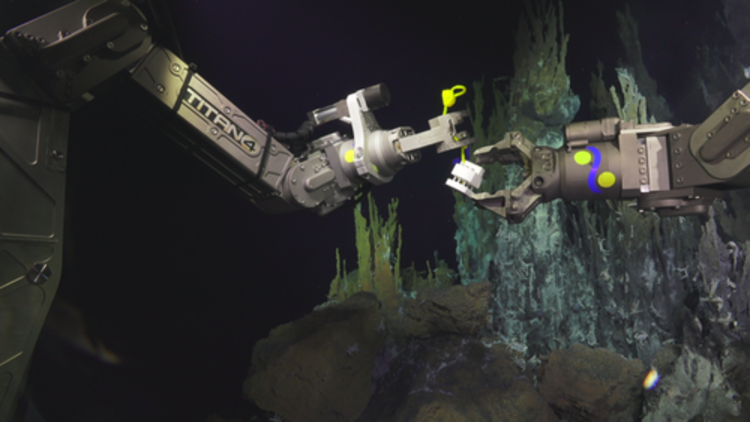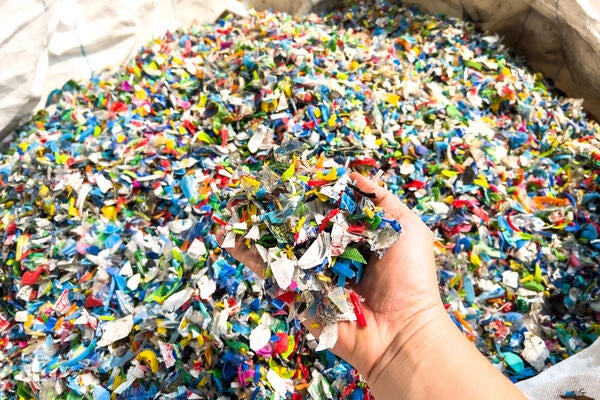
Researchers can now investigate the deep ocean without damaging fragile ecosystems
Researchers at the University of Waterloo have found an environmentally friendly way to explore life in the depths of the ocean

Researchers at the University of Waterloo have found an environmentally friendly way to explore life in the depths of the ocean
By Media RelationsUsing a new application of a sampling technique called solid phase microextraction (SPME), researchers collected samples from deep-sea vent ecosystems to study the biological and ecological processes that occur there, without damaging the surrounding organisms.
“The deep-sea vents that we are studying are the type of environment that existed at the beginning of earth’s creation,” said Janusz Pawliszyn, a chemistry professor at Waterloo and an author of this study. “Understanding the ecology and chemistry around these vents could eventually give us information on how life originated.”
SPME is an environmentally responsible option because it eliminates the use of large amounts of liquid traditionally needed to isolate molecules from water samples at the surface. In SPME analysis, a thin film coating is exposed to a water sample, directly absorbing small carbon-based molecules used for analysis.
 The SPME sampler being held by a remotely operated vehicle at the underwater sampling location in the South Pacific Ocean. Image credit: NOAA and Schmidt Ocean Institute.
The SPME sampler being held by a remotely operated vehicle at the underwater sampling location in the South Pacific Ocean. Image credit: NOAA and Schmidt Ocean Institute.
“When taking water samples to the surface, you actually remove something, including the microorganisms in the water – it’s like taking a biopsy of the water,” said Pawliszyn. “We’re not doing this, so it’s less invasive to the deep-sea ecosystems.”
Additionally, by separating the molecules deep underwater as opposed to on the surface, there is no change to pressure or light conditions, which can change the molecules in the sample before they can be studied.
“SPME represents a truer representation of the compounds close to the vents, and it’s better for the underwater environment,” said Pawliszyn. “We’ve been able to measure lipids, organo-sulfur compounds and other organic molecules, which are an indication of life in these ecosystems.”
This study is the first step in investigating the chemical conditions of life in deep ocean ecosystems. It demonstrates the viability of SPME technology for sampling these environments in sustainable ways.
This research, Unique Solid Phase Microextraction Sampler Reveals Distinctive Biogeochemical Profiles among Various Deep-Sea Hydrothermal Vents, was recently published in Scientific Reports by Jonathan James Grandy, Bora Onat, and Pawliszyn from the University of Waterloo, in conjunction with Verena Tunnicliffe from the University of Victoria, and David Butterfield from the National Oceanic and Atmospheric Administration.

Hand holding small pieces of cut colourful plastic bottles, which Waterloo researchers are now able to convert into high-value products using sunlight. (RecycleMan/Getty Images)
Read more
Sunlight-powered process converts plastic waste into a valuable chemical without added emissions

Dr. Travis Craddock, professor and Canada Research Chair, says the team's findings change our basic knowledge of biology (University of Waterloo).
Read more
New study reveals quantum-level effects in biology with major implications for treatment of some brain diseases

ESO 137-001, a jellyfish galaxy like the one recently observed by astrophysicists at the University of Waterloo. (Credit: NASA, ESA)
Read more
New astronomical find is 8.5 billion years old and reshapes our understanding of early cosmic evolution
The University of Waterloo acknowledges that much of our work takes place on the traditional territory of the Neutral, Anishinaabeg, and Haudenosaunee peoples. Our main campus is situated on the Haldimand Tract, the land granted to the Six Nations that includes six miles on each side of the Grand River. Our active work toward reconciliation takes place across our campuses through research, learning, teaching, and community building, and is co-ordinated within the Office of Indigenous Relations.